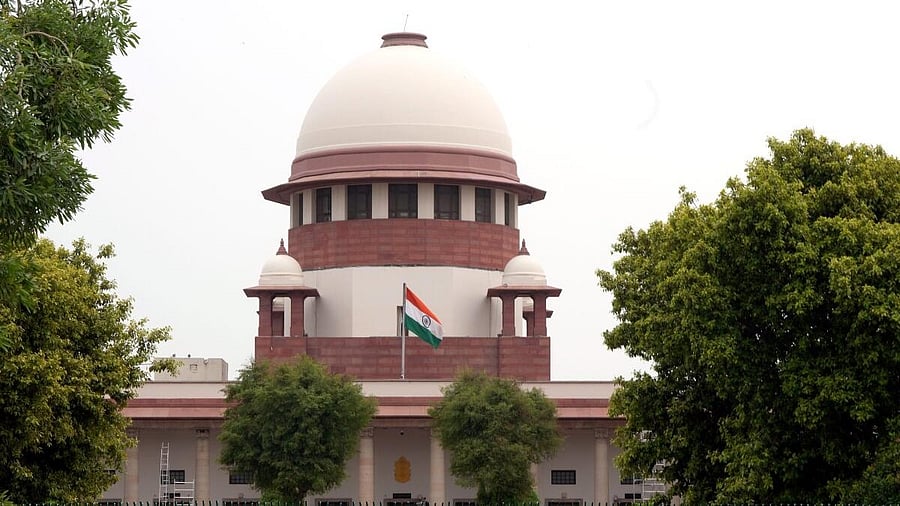
The Supreme Court of India,
Credit: PTI Photo
New Delhi: The Supreme Court has ruled that once a resolution plan of a corporate debtor is approved under the Insolvency and Bankruptcy Code, it is binding on all stakeholders, even those who are not party to the proceedings before the National Company Law Tribunal (NCLT).
A bench of Justices B R Gavai and Augustine George Masih pointed out that the court had previously held unequivocally that all claims not part of the resolution plan would stand extinguished, and no person, including government authorities, would be entitled to initiate or continue any proceedings in respect to a claim not included in the resolution plan.
In a contempt petition filed by M/s JSW Steel Ltd, the court found that tax officers of the Chhattisgarh government had acted in contemptuous manner by sending demand notices after the company took over M/s Monnet Ispat and Energy Ltd as the successful resolution applicant.
"We have no hesitation in holding that the demands raised by the respondents/authorities for a period prior to the date on which the NCLT approved the resolution plan were totally contemptuous in nature. The respondents could not have raised these demands as they are not part of the resolution plan," the bench said in its judgment on March 27, 2025.
In this case, the court noted that despite public notice, neither the State of Chhattisgarh nor its authorities raised any claims before the Committee of Creditors.
The court further stated that the respondent authorities could not have proceeded with the recovery proceedings when the previous judgment was brought to their notice.
The petitioner alleged willful disobedience by the alleged contemnors or respondents of the judgment passed by the court on April 13, 2021, in the case titled Ghanshyam Mishra and Sons Private Limited vs. Edelweiss Asset Reconstruction Company Limited and Others.
The bench agreed with the petitioner’s contention, noting that the law laid down in the Ghanshyam Mishra case was clear and unambiguous. Specifically, since the petitioner’s own case was part of the batch that had been dealt with by the court, the respondents should not have proceeded with the recovery proceedings and should have dropped them immediately.
"The continuation of such proceedings, despite the judgment and order of this court being pointed out to their notice, is nothing but contemptuous in nature," the bench stated.
The respondents, in their defense, submitted that they were responsible government officers and law-abiding citizens. They claimed the demand notices were issued in good faith and not intended to undermine the dignity of the court in any manner. There was no intention on the part of the alleged contemnors to disobey or disregard the orders passed by the court, their counsel argued. They also tendered an unconditional apology to the court.
The court quashed the demand notices as illegal. However, it decided not to proceed against the respondent officers, holding that they were entitled to the benefit of the doubt. It also accepted their unconditional apology.
